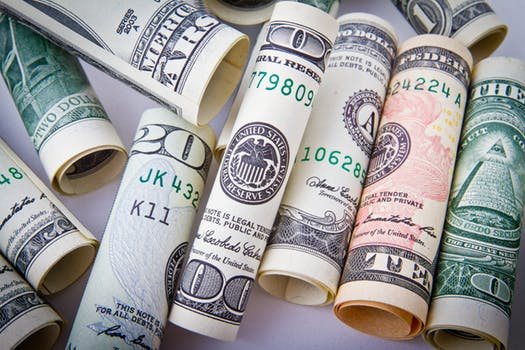We Need to Replace Money as a Measure of Success
The views expressed in our content reflect individual perspectives and do not represent the official views of the Baha’i Faith.
Humanity needs a new yardstick to measure achievement—today we quantify it with money and material gain, the worst possible way to evaluate actual success in life.
Money serves as such an inadequate way to measure life’s achievements. How can a solely materialistic tool pass judgment and render a verdict on our life’s attainments?
We need to replace money as a measure of success with a more spiritual or humane one. However, that would necessarily involve a revolution in our current system of values, in fighting the cancer of materialism that has eaten into every fabric of our lives and endangered the future of humankind and the plant.
One of the most significant driving forces in the world is and has traditionally been the desire for money. So many wars have been fought for it, and millions of lives have been lost for it. No aspect of modern life seems immune from its spell.
Accordingly, we have to look for a better place to invest our God-given gift of life with all its talents and abilities. This gift of life—meant to be spent on acquiring spiritual qualities, knowledge, and the sciences and arts—does not focus on transitory achievements and material goods. Life serves a higher cause than money.
So the time has come to try to create and define a new and comprehensive yardstick that covers all areas of our lives, reflecting our spiritual and human achievements alongside the material ones. This new yardstick will help us to understand and to work on all aspects of our lives—not just material prosperity. Then we can rationally decide the importance of money or lack of money in our lives, and to what extent we have to invest our energies in it.
The Baha’i teachings say there is nothing wrong with money as a tool, as long as we’re aware of its use and its danger in relation to the total goals for our lives. It can be given value for measurement, then, as long as it serves its purpose:
Wealth is praiseworthy in the highest degree, if it is acquired by an individual’s own efforts and the grace of God, in commerce, agriculture, art and industry, and if it be expended for philanthropic purposes. Above all, if a judicious and resourceful individual should initiate measures which would universally enrich the masses of the people, there could be no undertaking greater than this, and it would rank in the sight of God as the supreme achievement, for such a benefactor would supply the needs and insure the comfort and well-being of a great multitude. Wealth is most commendable, provided the entire population is wealthy. – Abdu’l-Baha, The Secret of Divine Civilization, p. 24.
If we move our measurement of achievement away from money, what should our yardstick measure? Since the spiritual and human qualities aren’t always tangible, we might want to change our focus to the many inner human character virtues accepted in most religions and moral codes. Here are just a few:
Trustworthiness, truthfulness, assertiveness, caring, cleanliness, compassion, confidence, consideration, courage, courtesy, creativity, detachment, determination, enthusiasm, excellence, faithfulness, flexibility, forgiveness, friendliness, generosity, gentleness, helpfulness, honesty, honor, humility, idealism, joyfulness, justice, kindness, love, loyalty, mercy, moderation, modesty, obedience, orderliness, patience, peacefulness, prayerfulness, purposefulness, reliability, respect, responsibility, reverence, self-discipline, service, steadfastness, tact, thankfulness, tolerance, trust, unity …
The list could go on and on, but some of these virtues have been emphasized in the Baha’i writings and other religions—truthfulness and trustworthiness, to name just two. These important qualities are good starting points. But first, we have to change our way of thinking and accept that our human and spiritual qualities are more important than our material possessions. We have to expand our minds and souls to grasp the importance of spiritual and moral attributes over tangible gains, and that process can start by reviewing what the Baha’i writings have to say about these valuable qualities:
Trustworthiness is the greatest portal leading unto the tranquility and security of the people. In truth the stability of every affair hath depended and doth depend upon it. All the domains of power, of grandeur and of wealth are illumined by its light. – Baha’u’llah, Tablets of Baha’u’llah, p. 37.
Truthfulness is the foundation of all human virtues. Without truthfulness progress and success, in all the worlds of God, are impossible for any soul. When this holy attribute is established in man, all the divine qualities will also be acquired. – Abdu’l-Baha, quoted by Shoghi Effendi in The Advent of Divine Justice, p. 26.
If we adopted trustworthiness and truthfulness as moral measuring tools to reflect more of our spiritual progress than money, that new yardstick could become a source of encouragement for many people who think they have failed in life. This would create a new way of getting rich in a real sense, and leaving the rat race of material acquisition—a step in the right direction that leads towards transformation into a new race of more spiritual human beings.
We cannot readily visualize such a yardstick now, but as we progress spiritually this will become clearer to us. If humankind sets a right course in order to survive, it has to shed some of the old values and criteria it has used to measure its progress in the past. New measures have to be adopted—like finding a new yardstick to replace money. Money has played its part in the past but, at present, it renders us a great disservice, and has become the creator of great miseries throughout the world. The sooner we start this adjustment, the sooner we’ll get on course to prepare the world for true progress.


